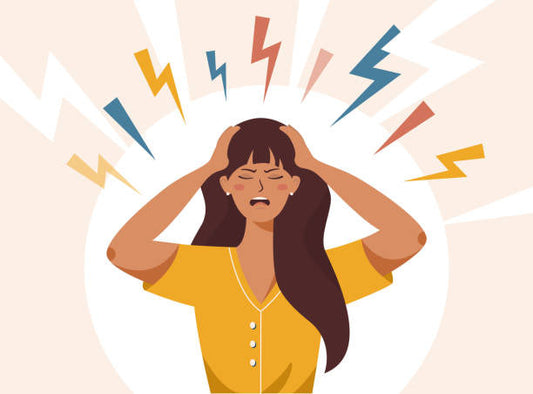
How To Sleep Faster: Simple and Effective Tips
Struggling with poor sleep quality? Whether it’s taking too long to fall asleep or waking up feeling exhausted, many people face sleep issues due to stress, lifestyle habits, or environmental factors. Falling asleep can be particularly challenging when distractions like electronic devices and bright lights are present. But the good news is you can improve your sleep with a few simple changes!
Getting better sleep isn’t just about feeling refreshed. Achieving enough quality sleep and ensuring you get at least seven hours of sleep are crucial for overall well-being. A good night's sleep boosts focus, mood, immunity, and overall health.
Understanding the Importance of Sleep
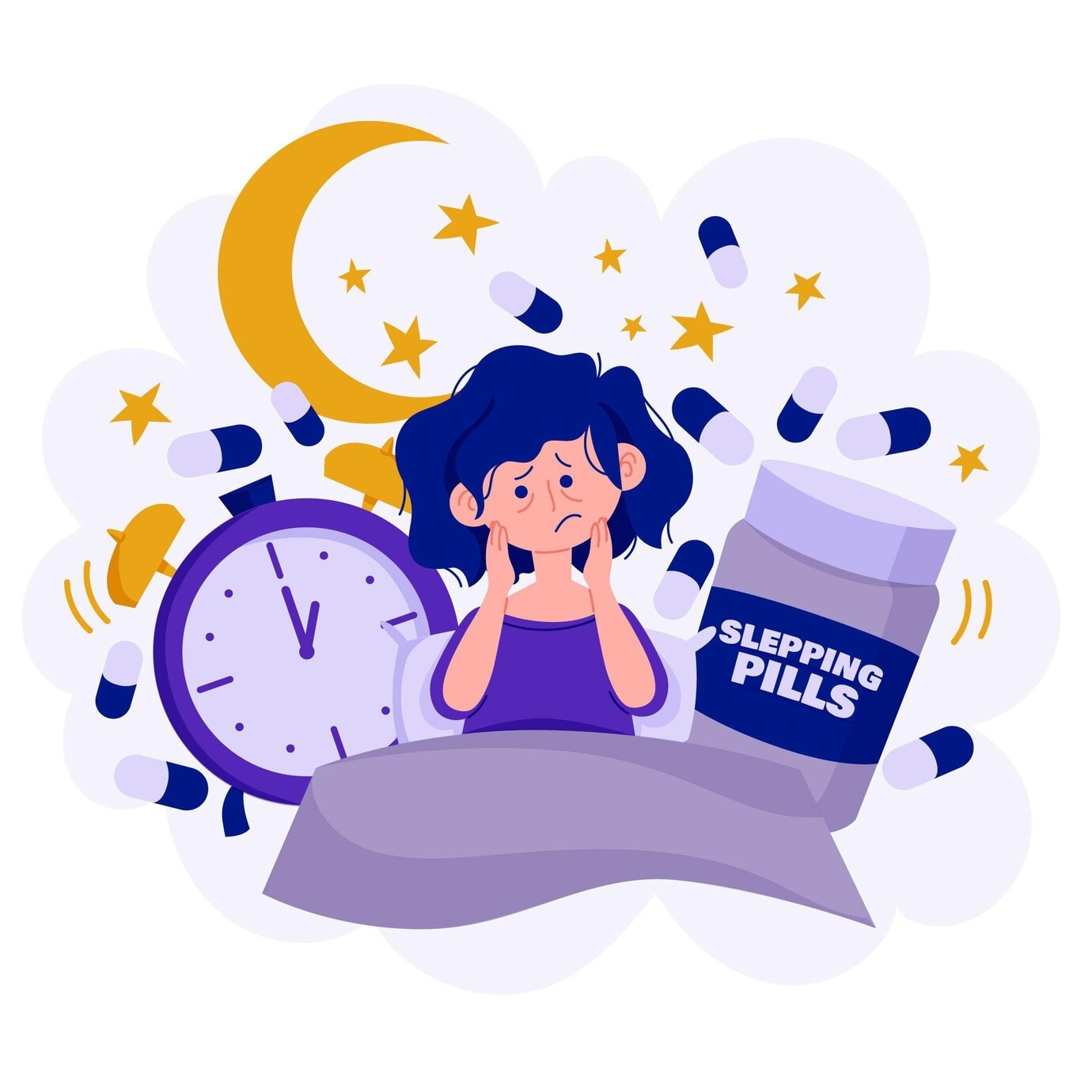
Why Sleep Matters for Your Health and Well-being
Sleep is more than just a time for your body to rest; it’s a critical component of your overall health and well-being. During sleep, your body goes into repair mode, regenerating tissues, building bone and muscle, and strengthening your immune system. But that’s not all—sleep also plays a vital role in cognitive functions like attention, memory, and problem-solving skills. Simply put, a good night’s sleep is essential for your mental and physical health.
Getting at least seven hours of sleep each night is crucial for maintaining healthy sleep patterns. Poor sleep can lead to a host of negative consequences, including fatigue, decreased productivity, and an increased risk of chronic diseases such as diabetes, high blood pressure, and cardiovascular disease. Additionally, sleep disorders like insomnia and sleep apnea can severely impact your quality of life and overall health.
Incorporating healthy sleep habits into your daily routine is essential for maintaining good sleep quality. This includes establishing a consistent sleep schedule, creating a relaxing bedtime routine, and avoiding stimulating activities before bedtime. By prioritizing sleep and making it a vital part of your daily routine, you can significantly improve your overall health and well-being.
So, if you’re looking for ways to sleep faster and wake up feeling energized, here are some practical tips to try!
1. Relax Before Bed: Wind Down Your Mind & Body
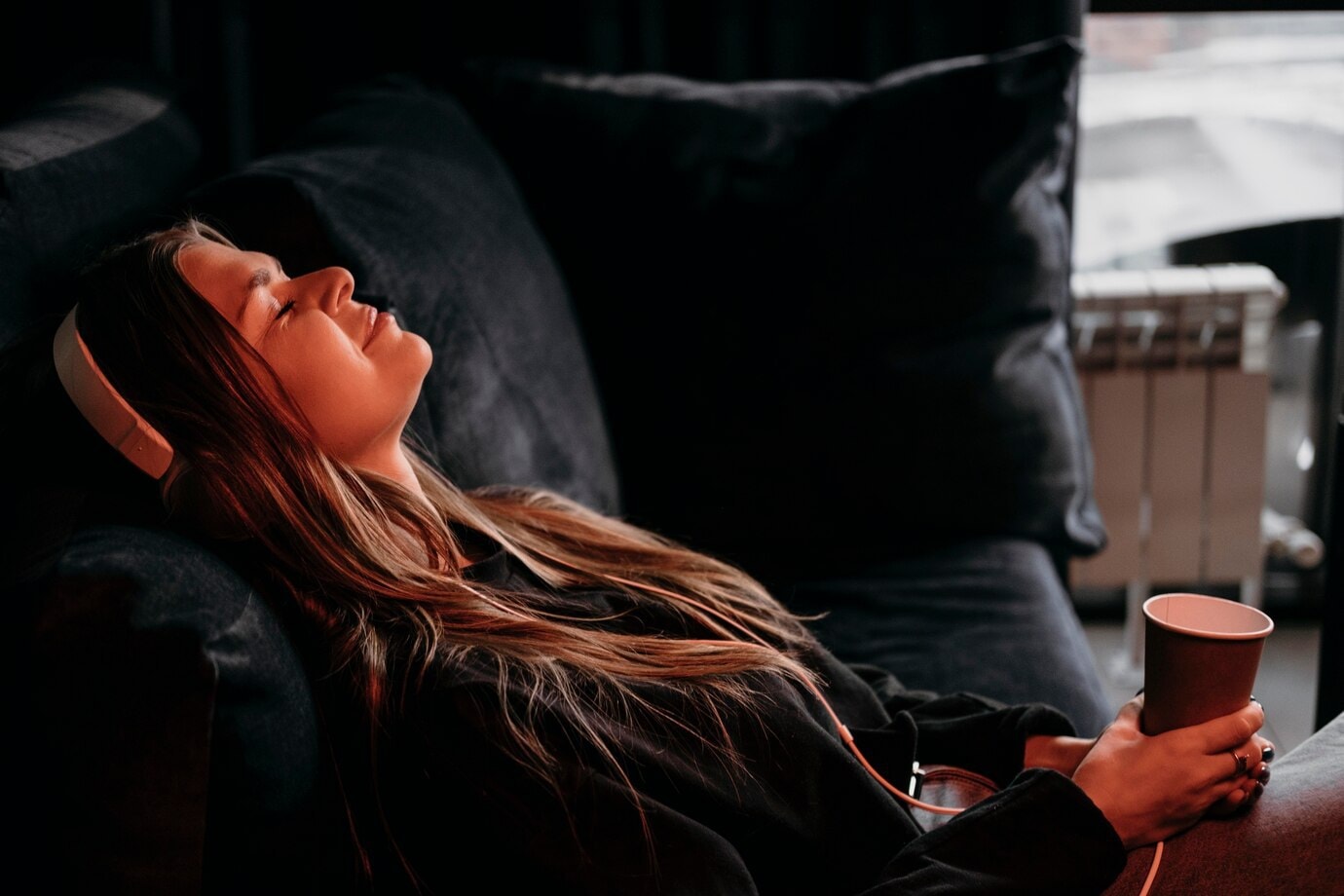
Rushing from a busy day straight to bed? That’s a recipe for tossing and turning all night. Your body needs time to slow down before sleep.
Mindfulness meditation can be an effective technique to help wind down the mind and body, making it easier to transition into sleep.
Try These Relaxation Techniques: Soothing Music
✔ Meditation & Deep Breathing – Try simple meditation or deep breathing exercises like the 4-7-8 breathing method (inhale for 4 seconds, hold for 7 seconds, exhale for 8 seconds).
✔ Mindfulness Meditation – Practice mindfulness meditation to reduce anxiety and improve sleep quality. Mindfulness techniques can calm the mind, making it easier to transition into sleep. Studies show the positive effects of mindfulness meditation on sleep outcomes.
✔ Light Music or White Noise – Soft instrumental music, nature sounds, or white noise machines can create a calming atmosphere.
2. Create a Sleep-Friendly Environment
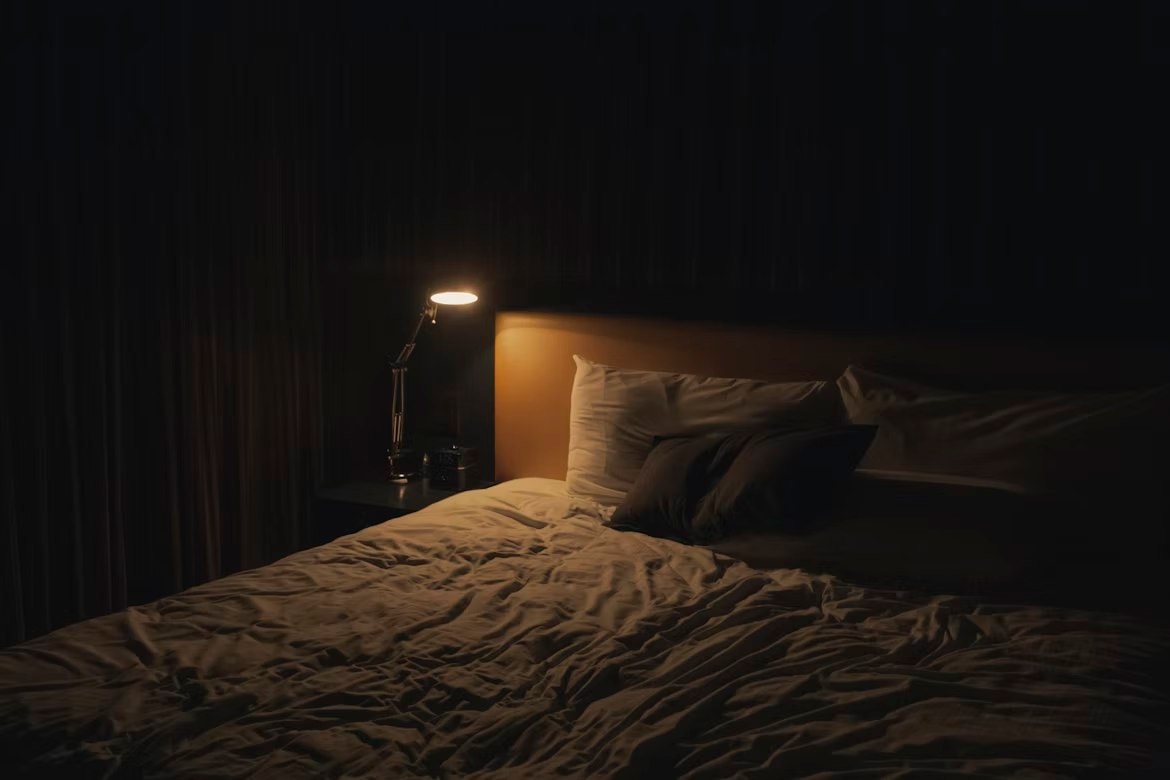
Your bedroom setup plays a huge role in how well you sleep. Creating a sleep-friendly environment is crucial for achieving a good night's sleep and for your overall health and well-being. Make sure your surroundings are optimized for rest by creating a sleep-friendly environment.
How to Improve Your Sleep Environment for Better Sleep Quality:
✔ Comfortable Bedding – Invest in a good mattress and pillows that support your body.
✔ Dark & Quiet Room – Use blackout curtains and reduce noise with earplugs or white noise machines.
✔ Cool Room Temperature – Malaysia’s heat can be a problem, so keep your room well-ventilated or use an air conditioner/fan for a cool, comfortable temperature.
✔ Soothing Music – Listen to soothing music to create a calming atmosphere, which can help your body ease into sleep.
3. Avoid Sleep Disruptors: No Stimulants Before Bedtime

What you eat and drink before bed affects your sleep more than you think! Sleep disorders can also significantly impact your sleep quality, making it crucial to recognize and address conditions like insomnia and sleep apnea.
What to Avoid Before Sleep:
🚫 Caffeine & Sugary Drinks – No kopi, teh tarik, or energy drinks at night. Caffeine stays in your system for hours!
🚫 Heavy or Spicy Meals – Late night spicy food can cause indigestion and disrupt sleep.
🚫 Too Much Screen Time – Scrolling TikTok or watching Netflix before bed exposes you to blue light, which stops your brain from producing the sleep hormones.
4. Stick to a Sleep Routine

Your body loves consistency. Achieving healthy sleep is crucial for maintaining overall health, as it can help prevent conditions like heart disease, obesity, and depression. Going to bed and waking up at different times every day confuses your internal clock, making it harder to sleep. Establishing a consistent sleep routine improves sleep quality and contributes to your overall well-being.
How to Set a Proper Sleep Schedule:
✔ Get Morning Sunlight – Helps regulate your body clock and improves melatonin production.
✔ Have a Pre-Sleep Routine – Whether it’s reading a book, stretching, or skincare, doing the same thing every night signals your body that it’s time to sleep. A consistent pre-sleep routine can help in falling asleep more easily by creating a relaxing environment and avoiding stimulants like alcohol and caffeine, as well as distractions such as electronic devices and bright lights.
✔ Use a Sleep Diary – Track your sleep patterns and identify factors that influence your sleep quality. Documenting your sleep habits over time can help you make informed adjustments to your sleep schedule and hygiene practices.
5. Get Regular Exercise

Regular exercise is a cornerstone of a healthy lifestyle and can significantly enhance your sleep quality. Engaging in physical activity helps reduce stress and anxiety, regulate body temperature, and promote relaxation, all of which contribute to better sleep.
Exercise for a Better Night’s Sleep:
✔ Daily Activity – Aim for at least 30 minutes of moderate-intensity exercise each day. Activities like brisk walking, cycling, or swimming can work wonders for your sleep patterns.
✔ Timing Matters – Avoid vigorous exercise within 2-3 hours of bedtime. While exercise is beneficial, doing it too close to bedtime can stimulate your body and make it harder to fall asleep.
✔ Relaxing Exercises – Incorporate calming exercises such as yoga or stretching into your bedtime routine. These activities can help calm your mind and body, making it easier to drift off to sleep.
✔ Natural Light Exposure – Try to exercise outdoors during the day. Exposure to natural light helps regulate your circadian rhythms, which can improve your sleep quality.
By making regular exercise a part of your daily routine, you can enhance your sleep quality and wake up feeling refreshed and energized.
6. Manage Stress and Anxiety

Stress and anxiety are common culprits behind trouble sleeping. Managing these feelings effectively can lead to a better night’s sleep and overall improved well-being.
7. Limit Naps and Stimulating Activities
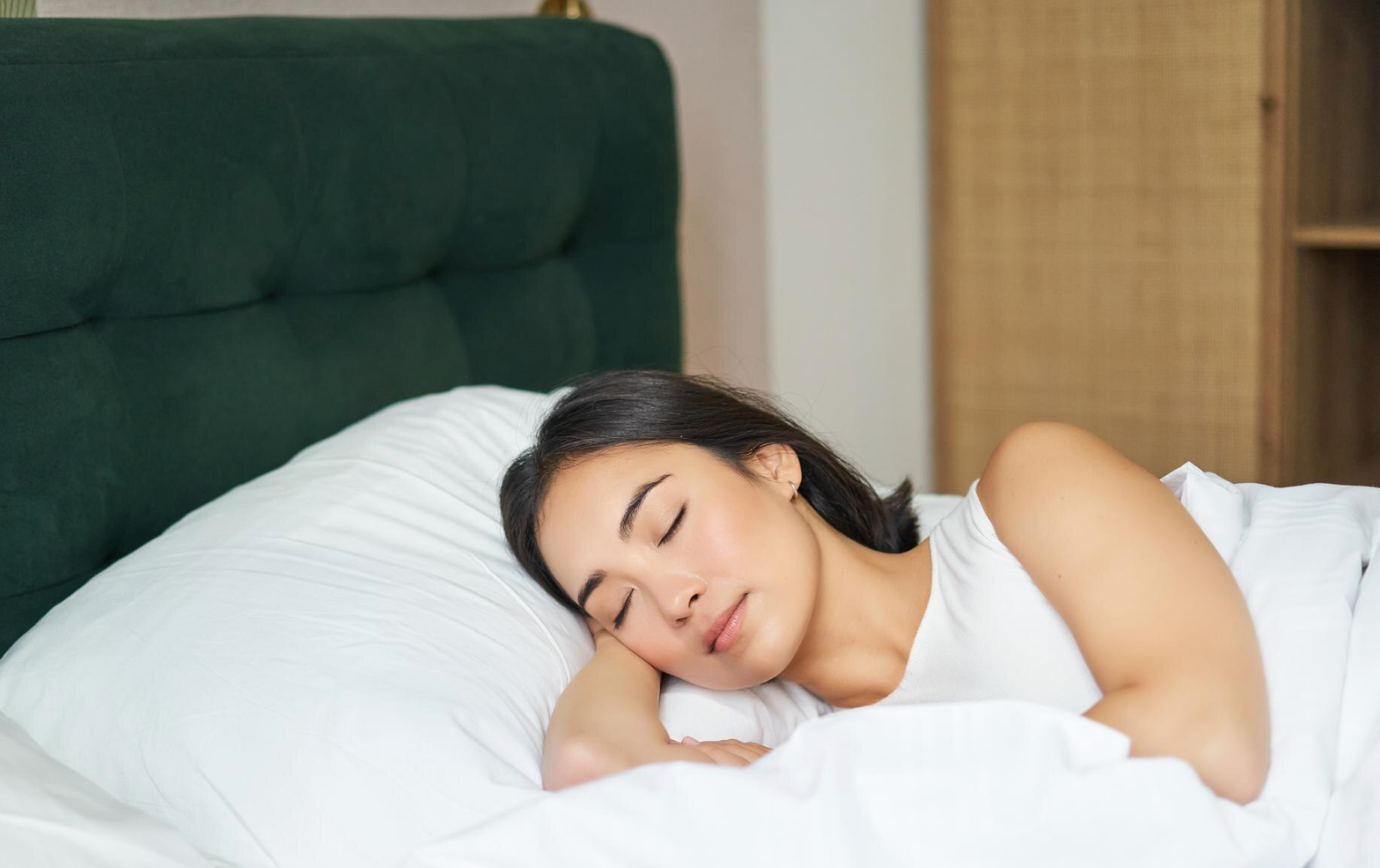
While naps can be refreshing, they can also disrupt your nighttime sleep if not managed properly. Similarly, engaging in stimulating activities before bed can make it harder to fall asleep.
8. Optimizing Your Diet for Better Sleep

Foods and Drinks to Include or Avoid for Better Sleep
What you eat and drink can have a significant impact on how well you sleep. Certain foods and beverages can help improve sleep quality, while others can disrupt your sleep patterns. Here are some dietary tips to help you fall asleep faster and enjoy better sleep:
Tip:
If you’re still struggling to fall asleep, try Caerofu Stress Gummies.

The Ashwagandha helps reduce stress, while Chamomile calms the body, making it easier to fall into a deep sleep. Good sleep is crucial for overall well-being, as it improves mood, reduces stress, and enhances both mental and physical health. Regular exercise also contributes to good sleep by helping to establish a consistent sleep routine and maintaining sleep hygiene.
9. Explore Professional Help for Sleep Disorders

When lifestyle changes aren’t enough, professional support can make all the difference.
Not all sleep issues can be solved with home remedies or routines. If you’ve tried improving your sleep habits but still struggle with trouble sleeping, it might be time to consider getting help from a professional.
Why See a Specialist?
Sleep disorders like insomnia, sleep apnea, or restless leg syndrome can seriously affect your health and daily life. These aren’t just bad nights — they’re medical conditions that need proper attention.
What is Sleep Medicine?
Sleep medicine is a branch of healthcare that focuses on diagnosing and treating sleep-related problems. A sleep doctor can:
- Conduct sleep studies to monitor your sleep patterns
- Recommend lifestyle or behavioral changes (e.g. CBT-I therapy)
- Suggest safe, targeted treatments to restore healthy sleep disorder
Don’t Be Afraid to Seek Help
Getting support doesn’t mean something is wrong with you — it means you’re taking steps to improve your well-being. Sleep is essential, and sometimes, getting expert advice is the fastest way to reclaim your nights.
Conclusion: Small Changes Lead to Better, Healthier Sleep
Improving how fast you fall asleep and the quality of your rest doesn’t mean flipping your whole lifestyle upside down. Sometimes, small shifts — like limiting stimulants, listening to soothing music, or sticking to a consistent sleep schedule — can make a big difference.
Natural options like Caerofu Sleep Gummies, made with Ashwagandha and Chamomile, are also great for promoting better sleep and managing stress. They’re an easy way to support your wind-down routine without relying on medications.
But if sleep issues persist, don’t ignore them. Sleep disorders like insomnia or sleep apnea are real conditions — and professional help through sleep medicine can guide you back to restful, healthy sleep.
Remember, at least seven hours of quality sleep every night isn’t a luxury — it’s a foundation for your mental clarity, physical health, and emotional well-being. Start small, stay consistent, and sweet dreams!


